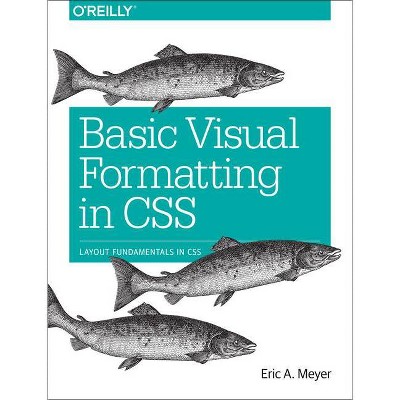Your Computer Is on Fire - by Thomas S Mullaney & Benjamin Peters & Mar Hicks & Kavita Philip (Paperback)

Similar Products
Products of same category from the store
AllProduct info
<p/><br></br><p><b> About the Book </b></p></br></br>"Collection of arguments about STEM fields' blind spots in computing and a deliberately provocative underscoring of humanists' appeals for a "wake up call" in computing culture"--<p/><br></br><p><b> Book Synopsis </b></p></br></br><b>Technology scholars declare an emergency: attention must be paid to the inequality, marginalization, and biases woven into our technological systems.</b> <p/>This book sounds an alarm: we can no longer afford to be lulled into complacency by narratives of techno-utopianism, or even techno-neutrality. We should not be reassured by such soothing generalities as human error, virtual reality, or the cloud. We need to realize that nothing is virtual: everything that happens online, virtually, or autonomously happens offline first, and often involves human beings whose labor is deliberately kept invisible. Everything is IRL. In <i>Your Computer Is on Fire</i>, technology scholars train a spotlight on the inequality, marginalization, and biases woven into our technological systems.<p/><br></br><p><b> Review Quotes </b></p></br></br><br>An all-star collection of readable and complex stories, all aimed at ensuring the naive view of neutral technology gets buried and, please, left in the past.<b><br>--<b>Public Books</b> <p/></b>The collection of impactful tech issues interrogated over the span of decades in this book makes it recommended reading for anyone interested in the impact of tech policy in businesses and governments, as well as people deploying AI or interested in the way people shape technology.<b><br>--<b>VentureBeat</b><i> <p/></i></b>Technology is so embedded in our lives that we can sometimes forget it is there at all. <i>Your Computer is on Fire</i> is a vital reminder not only of its presence, but that we urgently need to extinguish the problems associated with it.<br><b>--<i><b>New Scientist</b></i><br></b><br>The book tech critics and organizers have been waiting for.<b><br>--<b><i>Los Angeles Review of Books</i></b><br></b><br><p/><br></br><p><b> About the Author </b></p></br></br>Thomas S. Mullaney is Professor of History at Stanford University and the author of <i>Coming to Terms with the Nation: Ethnic Classification in Modern China</i>. <p/>Benjamin Peters is Associate Professor in the Department of Communication at the University of Tulsa and affiliated faculty at the Information Society Project at Yale Law School. <p/>Mar Hicks is Associate Professor of History at Illinois Institute of Technology. <p/>Kavita Philip studies colonialism, neoliberalism, and technoscience using history and critical theory. She is an Associate Professor at the University of California, Irvine.
Price History
Price Archive shows prices from various stores, lets you see history and find the cheapest. There is no actual sale on the website. For all support, inquiry and suggestion messagescommunication@pricearchive.us



















